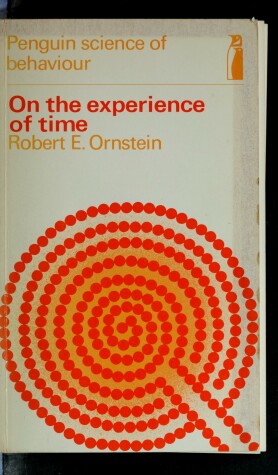Science of Behaviour S.
1 total work
How do we experience time? What do we use to experience it?In a series of remarkable experiments, Robert Ornstein shows that it is difficult to maintain an inner clock explanation of the experience of time and postulates a cognitive, information-processing approach. This approach alone makes sense out of the very different data of the experience of time and in particular of the experience of durationthe lengthening of duration under LSD, for example, or the effects of an experience felt to be a success rather than a failure, time in sensory deprivation, the time-order effect, or the influence of the administration of a sedative or stimulant drug. }How do we experience time? What do we use to experience it?In a series of remarkable experiments, Robert Ornstein shows that it is difficult to maintain an inner clock explanation of the experience of time and postulates a cognitive, information-processing approach.
This approach alone makes sense out of the very different data of the experience of time and in particular of the experience of durationthe lengthening of duration under LSD, for example, or the effects of an experience felt to be a success rather than a failure, time in sensory deprivation, the time-order effect, or the influence of the administration of a sedative or stimulant drug. }
This approach alone makes sense out of the very different data of the experience of time and in particular of the experience of durationthe lengthening of duration under LSD, for example, or the effects of an experience felt to be a success rather than a failure, time in sensory deprivation, the time-order effect, or the influence of the administration of a sedative or stimulant drug. }
